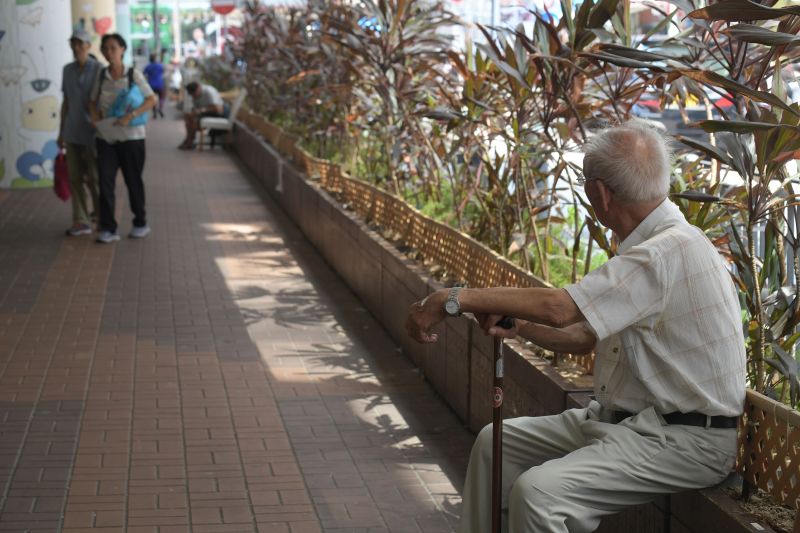How much of Hong Kong’s political poison would drain away if the city supplied enough land—and, yes, there is plenty available; don’t believe the Great Land Crunch myth perpetuated by fat-cat property developers and their cronies in government —to build nearly three million more flats?
And what if, simultaneously, Chief Executive Carrie Lam Cheng Yuet-ngor—whose popularity ratings, like those of each of her three hapless predecessors, are trending distinctly downward—were also to announce a universal pension scheme that assured all of this city’s 7.4 million people that they could grow old with dignity and financial security?
How many independence banners would these two policy directives inspire? How many protesters would march against them in the next anti-National Day parade? How many young people would be localised and radicalised by their implementation?

Exactly. Those banners would dwindle into insignificance, would-be protesters by the thousands would choose to stay home and our younger generation would look to the future with hope and promise rather than pessimism and despair.
Of course, don’t count on the Lam administration—which, 20 years after the handover from British to Chinese sovereignty, is still determined to run this city as a low-tax colony for the rich—to make any such game-changing policy pronouncements, even though evidence clearly shows that solving the city’s acute housing problem is simply a matter of political will while creating a much-needed nest egg for pensioners is both eminently doable and affordable.
If Lam and Co. were to accept even half of the recommendations made at a recent forum on Hong Kong’s housing crisis organised by the Global Institute for Tomorrow (GIFT), an independent pan-Asian think-tank devoted to solving economic and social ills on the continent, there would be no more caged homes or sub-divided firetraps in our city within a decade.
In total, the land-supply solutions presented at the forum would free up 4,279 hectares on which 2.8 million flats could be built. Compare that to the plan to build 460,000 flats by 2027 that was launched by the previous administration of Leung Chun-ying and that current officials now caution is overly optimistic.

One innovative proposal broached at the forum calls for the relocation of the outdated Kwai Tsing Container Terminals to Lung Kwu Tan in Tuen Mun. That would allow the 279 hectares now occupied by nine terminals to be redeveloped to make way for 185,535 flats in an urban area far better suited for housing than for the logistics and transportation industry; meanwhile, the upgraded terminals would move to a 650-hectare site on reclaimed land in Lung Kwu Tan. Everybody is a winner.
Other proposals—including scrapping the notorious small-house policy for indigenous villagers in the New Territories, snapping up land now being hoarded by greedy property giants and developing brownfield sites and land reserved for the expansion of Disneyland—are already well known and entirely commendable, but the city’s skewed politics and special interests stand in their way.
The powerful rural advisory body, the Heung Yee Kuk, will furiously resist any change in housing policy in the New Territories, and of course Hong Kong property tycoons and Mickey Mouse also have a lot of weight to throw around.
Thus, it is unlikely that we will see these proposals come to fruition. But the GIFT forum nevertheless stands as a stark reminder that Hong Kong’s intractable housing woes are altogether solvable. We just lack the political courage and will to make it happen.
As for the universal pension that the Hong Kong government, despite its nearly HK$2 trillion in fiscal reserves, is loathe to fund, a recent Open University survey reveals that most Hongkongers would be happy to fork over some of their own cash in the form of higher taxes if that money is used to finance a pension scheme that provides them with a comfortable retirement.

Of the 1,800 people interviewed, 72 percent were willing to pay 1 to 2.5 percent more in tax, and an even higher tax hike was acceptable to most of those agreeing to an increase.
Dr Charles Kwong Che Leung, associate dean of the university’s School of Arts and Social Sciences, which conducted the survey, argues that a tripartite financing scheme involving employees, employers and the government would be affordable at present and sustainable in the long run. But employers and the government must cease their miserly ways and also kick in.
Close your eyes and imagine Hong Kong with a universal pension scheme and affordable housing for all.
Who would care about politics?
